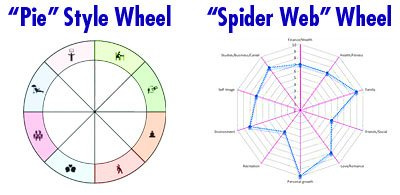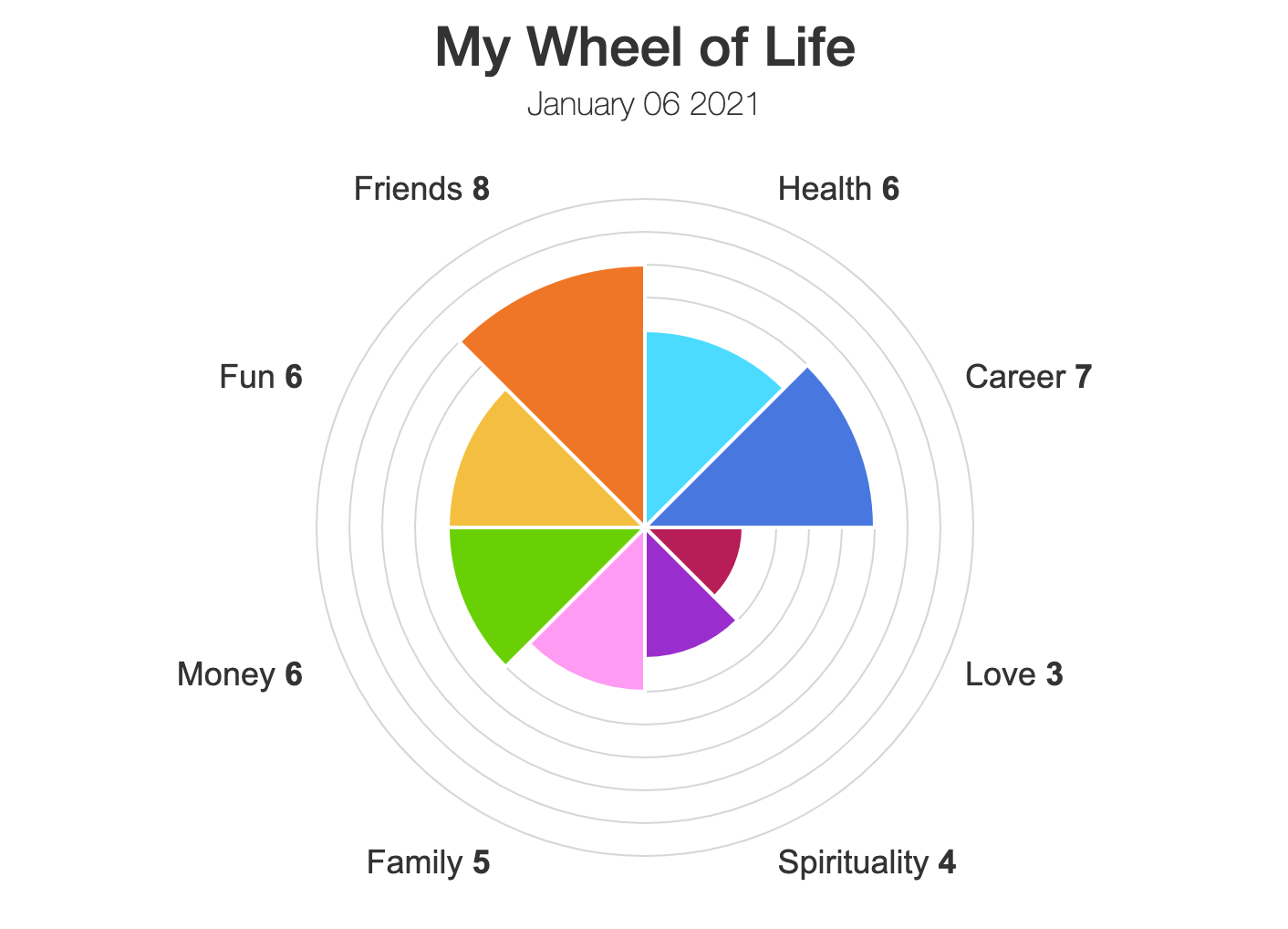Know yourself better
I was listening to an interview recently with Michael Phelps - one of the greatest swimmers in human history. He shared something that stuck with me. When you need to perform at such a high level - among the best of the best, you can’t let a single rep go to waste. That doesn’t mean every day will be a good day. Far from it. Michael talks openly about his personal battles with depression. But what it does mean, is not throwing your hands up when you’re having a bad training day, packing it in and coming back tomorrow.
Everyone - even the most elite performers - has bad days, bad weeks, and bad years. No matter how ready you feel when you first turn up, sometimes you get in the pool and just can’t find your rhythm. The difference-maker is that even on their worst-performing day they will push themselves to get another 30-50% out of their body. It still won’t have been 100%, but 60% is better than nothing.
I know that finding an extra 30% may already sound strenuous but it was a comforting reminder that we’re all human and that world-beating Olympians are not robots. What often characterizes them is the time they take getting to know and intimately understand their bodies. Performance athletes understand the importance of sleep and rest. They know how crucial it is to have low-load days, and of stretching before exertion. They journal regularly, regulate their internal voice and moderate their psyche to push themselves beyond what they might otherwise have expected.
So we’re near the end of January, and you might not be exactly where you want to be. But it’s never too late to take a positive step towards being the person you want to become.
Who are your habits?
James Clear, author of Atomic Habits, shares a great paradigm in his book. One of the best ways to ingrain new habits is not just thinking of them as actions we will undertake, but the person we will be who does those things.
Your current behaviors are simply a reflection of your current identity. What you do now is a mirror image of the type of person you believe that you are (either consciously or subconsciously). To change your behavior for good, you need to start believing new things about yourself. You need to build identity-based habits.
Many people begin the process of changing their habits by focusing on what they want to achieve. This leads us to outcome-based habits. The alternative is to build identity-based habits. With this approach, we start by focusing on who we wish to become.
The two-step breakdown of this is:
1. Decide the type of person you want to be.
2. Prove it to yourself with small wins.
Want to become a better writer?
Identity: Become the type of person who writes 1,000 words every day.
Small win: Write one paragraph each day this week.
Identifying the right goals
So how should we define our goals? A mental framework worth deploying here is the Five Whys. Khe Hy, author of Rad Reads, gave a good example of this.
Very often the reason we fail to achieve our goals or fail to achieve the underlying satisfaction when we do meet them, is that we are asking the wrong questions and not solving the right problems. Here’s what the Five Whys framework might look like when investigating a car that won’t start:
Why? – The battery is dead. (First why)
Why? – The alternator is not functioning. (Second why)
Why? – The alternator belt has broken. (Third why)
Why? – The alternator belt was well beyond its useful service life and not replaced. (Fourth why)
Why? – The vehicle was not maintained according to the recommended service schedule. (Fifth why, a root cause)
By getting to the root cause you can better understand the core issues that would likely continue confounding any attempt you made to solve the problem at higher levels of inquiry.
Here’s another example from Khe, this time breaking down the goal of wanting to reach $2000 a month in passive income:
Why? – I want to be free from working in the corporate world
Why? – I want to pursue my own interests without the worry of obligation
Why? – I want to be free
Why? – I want to have more time to explore myself
Why? – I have not had enough time to understand who I am
Hopefully, you can see why focusing only on the top-level goal instead of causal factors would still leave you unfulfilled and in want of more. It also explains why people are very rarely happy when they over-index their efforts on monetary gain and the acquisition of shiny objects rather than solving for the underlying motivators.
The life equation
It’s never too late to redefine who you are and re-commit to how you want to spend your time. It’s never too late to make the decision that you will be the person you want to be and make time for the things you value most rather than the things you have automatically assumed are important.
January is a great time to re-prioritize where we place our effort in contrast to where we place our value. Very often we say certain things that mean a lot to us, such as family life, friendships, and our emotional well-being. Yet simultaneously we often fail to prioritize these things or attribute enough real-time value to them.
Take a break from the status quo this week. Take a moment to pull yourself out of your own assumptions. It’s very easy to be dragged along by the ferocious pace of life, particularly as the year gets underway. It’s only by intentionally stepping back from the continual drive of “progress“ by any means that we can separate ourselves from these false expectations.
Balance is an illusion
If you put your leg in the air and stand on one foot are you balanced are you balancing? The answer is the latter. The perfect, constant work/life balance probably doesn’t exist. Life is a constant act of finding balance in each and every moment. In order to find balance, we need to know where we are centered.
In my view, this act of centering means defining what it would be like to be perfect or at least happy in each significant area of your life. Once you have defined what a 10/10 looks like in each of these areas, consider where you are now in contrast. Then think about what steps you can take in each area to feel more fulfilled.
Very often what we perceive as discomfort in a certain area of life is just a lack of alignment with our values or a lack of strategy in finding that balance.
Prioritizing is key, but it’s equally important to understand you can maximise your fulfillment in multiple areas simply by being intentional. By distinguishing what we want from each area of our life, we’ll be better placed to balance and adjust as we go along.
A framework for fulfillment
So here’s the framework I wanted to share today - it’s called the life wheel. I was introduced to it late last year by a coach of mine, and employing it since the start of the year has helped me operate with great clarity, and be proactively more conscious in my approach to each significant area of my life.
Most of the templates I found online seemed poorly designed or lacking in-depth, so I built my own framework in Notion which allows for further questions and regular review. I’ve made the template available here, but I’ll talk through it for those that want to recreate the process manually.
The Life Wheel is a powerful construct because it visually contrasts your analysis of your status quo versus your ideal state. It is called the Life Wheel / Wheel of Life because each area of your life is mapped on a circle, like the spoke of a wheel.

The model I have developed for going through this process is: Appraise, Inspect, Design, Audit (AIDA). These are the steps you should go through in considering each major area of your life.
Appraise
To start, split your life into roughly 8 key areas. Here are some examples:
- Family
- Friends
- Love
- Career - this might also be "Parenting", "Work" or "Volunteering"
- Finances - alternative labels are "Money" or "Financial Security".
- Health - This could be split into "Emotional" and "Physical", but I have separate frameworks for tracking my mental health.
- Fun & Leisure - this might also be “Business” or “Hobbies”
- Spirituality - For you, this might be "Learning" or "Self-Development".
Draw or download a wheel with 8 segments labeled after each category, and give yourself a score out of 10 for each area. Here’s an example of one of mine:

The next two steps are what elevates this from a visual to a transformative process.
Inspect
Review the scores you gave yourself for each area, and ask yourself critical questions to identify what factors led to that determination.
A great quote from Tony Robbins in an interview with Time Ferris a while back was:
“The quality of your life is measured by the quality of your questions.”
Ask questions that go below surface-level evaluation and get to the root causes.
Design
Using incisive questions, break down what 10/10 would look like for each area. How would you feel if you were in that space? What would it look like?
Then write down what steps you should take to get there. Think about the person you would need to be to be a 10/10 in that area, and what kind of things that person would do? Write down the blueprint of regular steps/habits you could build to get there.
There are some aspects of our lives where we somehow expect that things will automatically fall into place without concerted, strategized effort, and yet are surprised when they don’t. This evaluative process reminded me to plan both input and output metrics for things I want to achieve.
Input metrics are things you need to do to be on the right track. Output metrics are things you should see / situations that occur when you’re on the right track. It’s important to have at least a little of both.
Audit
Once you have undergone the exercise of centering and established ideal targets for each area of life, you can continually re-evaluate where you are, at a cadence you find comfortable, to continue refining the art of balance.
Start your days thinking of the person you want to be and what you can do to take a step in the direction you want to go. Also, use this time to think about what you wrote - it’s not cast in stone. Will you truly meet your goals by sticking to this blueprint? How can you refine what you truly want and the steps it will take to get there? You can make small changes to what you’ve previously written, but if you’re going to make substantial changes it might be best to start the process afresh.
If you’re new to this kind of review you might find it best to review daily and repeat the exercise every month. Once you have built some muscle memory of recalling principles, priorities, and goals, you can step down to quarterly or even yearly reviews.
I hope you found this useful. If you try anything I’ve shared above or have any other frameworks for balance and self-alignment, I’d love to hear from you! Reply via email, leave a comment or send me a tweet!

Reading list
Books I’ve read/seen/will impulsively buy and add to my “to read” shelf on Goodreads. Recommendations from newsletter readers are always welcome:
- Lock-In by John Scalzi - impulsively bought. A great installment of speculative fiction from a sci-fi master. This is essentially a futuristic FBI drama, but I enjoyed it.
- Ultralearning by Scott Young - recommended. I listened to the author on a podcast years ago and somehow still never got around to buying the book.
- Lolita by Vladimir Nabokov - read. Ew. I’m not sure if I’m under any obligation to say much more than that. It is a very well-written book, and I don’t mean to sound like a prude, but I’m not entirely sure why it’s so lauded. There are many other great works of literature.
Things I’m loving
Films and shows:
- American Gods - I’ve been chastised at several times in the last few years for not having started this, and have already watched youtube videos on the surrounding lore. Neil Gaiman is awesome. The series is great.
- The Dragon Prince - Conceptually great, and coming from the same writers who birthed Avatar: The Last Airbender, I was guaranteed to enjoy it. That said, I have some doubts I’ll make it to the end, because “death by exposition” is very real, and I think Netflix-owned/run series suffer many of the same flaws.
Resources:
- Duolingo - I’m on a 211-day streak and am upgrading to a yearly subscription. My competitiveness has been successfully weaponized against me. Do I love it or do I hate it?
- Overcast - I’d been a long-time acolyte of Castbox until this point and I can’t articulate how happy I am to finally be free from its spiritual bondage. The android version was great but the iPhone counterpart was riddled with giant ads. Transferring to Overcast wasn’t easy but it was worth it.
- Audible - people keep asking how I read up to 8 books a week and I’m going to keep telling you that Audible is the best thing since sliced bread. Make the most of the daily/weekly deals and start your digital stockpile!






